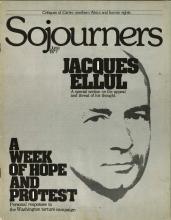There are several ways to try to come to grips with the new Administration’s policy toward southern Africa. One can point to new faces, new rhetoric, and some symbolic gestures as signs of change. One can wait for completion of a Presidential Review Memorandum. But after hearing four months of rhetoric in search of a policy, I would advance a more pessimistic and disturbing thesis for consideration. Contrary to conventional wisdom, the major decisions on personnel and issues taken thus far demonstrate an underlying determination to perpetuate the policies of the past--the policies of minimal change and minimal infringement on our economic interests.
We say we seek a peaceful transition to majority rule in Rhodesia. Yet the large majority of present U.S. international policy makers are people working without training in modern historical or cross-cultural analysis. Guided instead by the hoary clichés and ideological assumptions of vested interests, these policy makers have placed the United States well down the road toward insuring precisely the large scale bloody conflict it claims it wants most to avoid.
I hope very much that I am wrong. Like many Americans I was enormously proud and pleased with Secretary Vance’s eloquent address on human rights on April 30. Food, shelter, health, and education should indeed be human rights. International economic aid and other mechanisms should be used to foster such rights and “our strong support [should] go to countries that are working to improve the human condition.”
Read the Full Article

